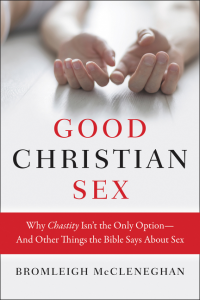I started following Teen Vogue back in the fall, when it first became clear that the editorial content had moved well beyond fashion trends and into the realm of politics. Here was a publication with a critical editorial vision and slant that lifted up marginalized voices — young women, people of color, queer folks (even pro-choice clergy!) – and spoke clearly about the impact of cis-het white (mostly male) privilege on its audience. Teen Vogue was connecting the dots.

I picked up the “love and sex” issue when it was published this spring, and I was delighted by the range of covers and content – particularly the article on how being overly involved with your smartphone can sometimes keep you from getting involved with actual, other, embodied people you might like and want to make out with.
I considered getting a subscription for my pre-teen, who dreams of becoming a fashion designer, because the magazine so well situates fashion in the midst of other adolescent concerns: tech, love, sex, politics, and the environment. I’m happy for my daughter to be interested in fashion, but I don’t want her to be shallow, you know? And I’d love for her to hear from someone she considers more reliable than me that a smartphone is not the end all/be all of existence. (Her longing for one knows no bounds.)
I didn’t ultimately get her a subscription, yet, because it skews a little old. The recent article “Anal Sex: What You Need to Know” is a pretty clear example. But just because my ten year old isn’t ready for that level of detail doesn’t mean it’s not a helpful, informative piece that sets just the right tone for conversation for older teens and young adults.
I’m not alone in my high opinion of the piece, but it should come as no surprise that word got around to the Christian Internet that Teen Vogue was providing impressionable young people with frank, factual information about an under-discussed form of sex and said Christian Internet responded with disgust and outrage.
The outrage falls into several categories:
1) Stick with fashion!
2) This is not really feminist!
4) This is obscene! Think of the children!
5) This promotes sodomy (and gayness!) (Remember The Princess Bride? I do not think it means what you think it means… the sin of Sodom isn’t anal sex or homosexuality)
6) This is not medically accurate!
And my favorite:
7) Teen Vogue has clearly made a pact with Satan
Now, not all of these complaints are created equal: some raise reasonable critique while others are clearly unhinged. There’s a complaint about the normalization of anal sex; how while it’s an act as old as time, actual teenagers (particularly girls) actually engaging in it and talking about it is new, a symptom of misogyny and porn culture. There may be something to the first point – oral and anal sex both seem more popular among American teenagers now than in previous generations, and certainly their portrayal in the media has become more widespread – but I remain unconvinced by the diagnosis of the root causes.
I was in high school just as the internet was being born, largely outside the “purity culture” that sometimes seems to encourage kids to get creative in order to avoid the technicalities of “virginity loss,” and I still knew straight kids who had had anal sex. What blows my mind, honestly, is that kids of any generation have figured out how to negotiate the conversations around making sure that such acts are consensual and mutually pleasurable. I could barely ask someone to kiss me before I was twenty.
Of course, it may be that they’re not navigating those conversations well. Some readers raised the valid concern that the Teen Vogue article isn’t clear enough about coercion or the potential for injury. And, obviously, no one should be coerced into trying anal to satisfy a partner’s curiosity, but no one should be coerced into any kind of sex. The fact that people of any age struggle to ask for what they want and articulate their own boundaries when it comes to either romance or sex is the reason that an article like this, which is both precise and personal, is so important. Maybe a girl or a boy can’t quite find the words to turn down an ardent partner; seeing confirmation, in print, that not everyone’s into “butt stuff” gives them validation to decline.
As someone who writes about “Good Christian Sex,” I often get asked which acts are “okay” at which point in relationships. I try to reframe that question each and every time: I am pretty well convinced the God we know in Christ does not give two hoots how specifically you get off, as long as it’s consensual, mutual, safe (enough), and recognizes the full humanity of both partners and the complexity of your context. I didn’t feel the need to write about anal sex in my book (though Mark Driscoll did!), or any specific acts, but I am a firm believer in the need for thorough, accurate information, freely, widely, and easily accessible. The gay kids I knew in high school, for example, who knew they were gay years before they even dreamed about stimulating their prostates, weren’t getting any information about their questions or concerns in our otherwise decent school health classes. Sex ed is a right, and we deny our kids their rights when we keep them from the knowledge they need to make healthy choices.
As it turns out, the better information they have, the healthier choices they will make.
Maybe the biggest lesson for Christians picking up Teen Vogue, whether they plan to hand it to their teenagers or burn it, is that if we don’t get on board with recognizing the wideness of human romantic and sexual experience and desire – without shaming everyone outside of our experience as deviant – our kids will look to, and find, other authorities. In the vacuum we create, we can only hope they will land on sources as reliable and well-intentioned as Teen Vogue.
Bromleigh McCleneghan is ordained in the United Methodist Church and serves as a pastor in the United Church of Christ. Her first book, co-authored with Lee Hull Moses, is Hopes and Fears: Everyday Theology for New Parents and Other Tired, Anxious People. Last year, she published Good Christian Sex: Why Chastity Isn’t the Only Option and Other Things the Bible Says About Sex.
Get a free download of a Christian parenting manifesto that helps us guide children into healthy spirituality + the most helpful parenting resources with progressive values.
















